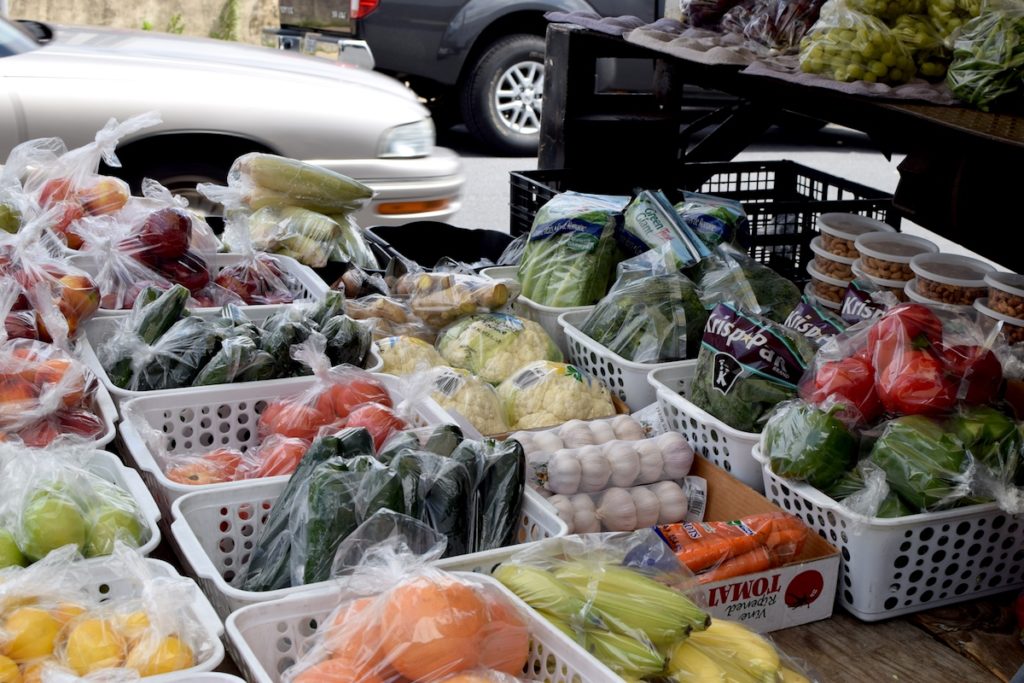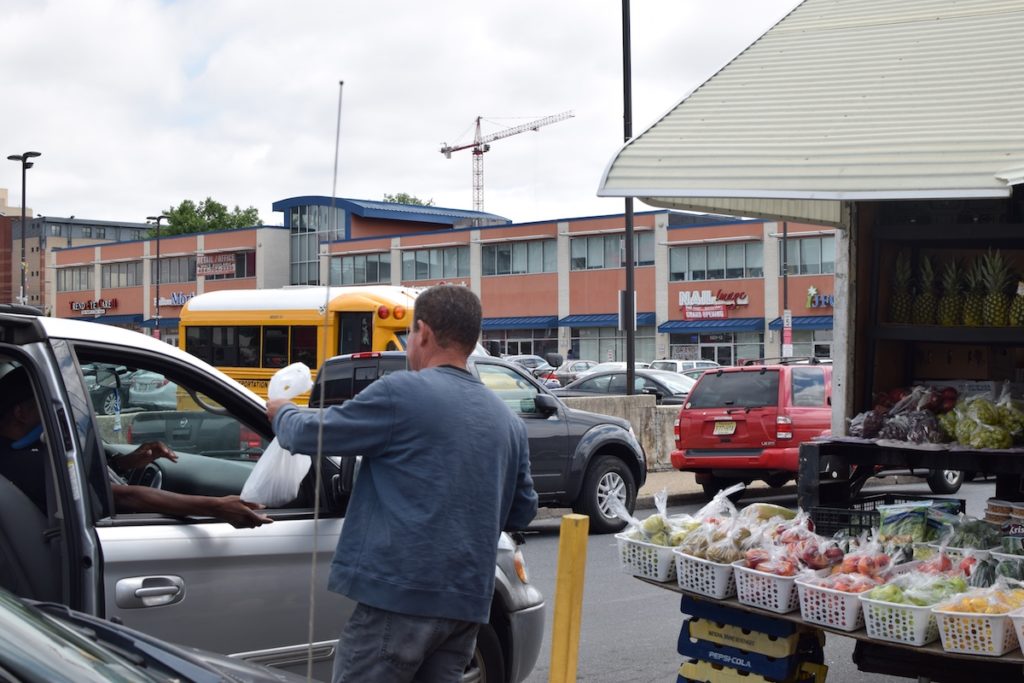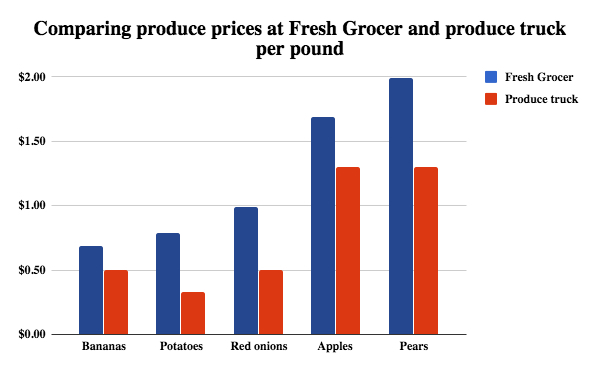In North Philly, a produce truck and a supermarket are fighting food insecurity
 June 15, 2018
Category: Feature, Featured, Long, Method
June 15, 2018
Category: Feature, Featured, Long, Method
On maps detailing food insecurity in the city, North Philadelphia has long been marked as an area to be concerned about. But, as more studies and reports of hunger in the neighborhood surface, a produce truck on Broad and Jefferson streets quietly sells produce for about $1 to $2 a bag — and has been for nearly 25 years.
Every day (except Sundays and holidays), Aleksandr Faynberg makes a table out of a sheet of plywood and stacked beverage containers to lay out a spread of goods like nuts, fruit and vegetables. Sales last from 9 a.m. to 6 p.m. in the summer and end an hour earlier in the winter.
The weight of the bags he sells range from two pounds to (sometimes) five. Generally, vegetables are $1 per bag, fruit is $2 per bag and certain offerings, like cashews, are $3. Customers can use their Supplemental Nutrition Assistance Program (SNAP) benefits at the truck.
For Ruth Lee, the truck is a convenient, walkable distance from her Yorktown home. Being on the street allows customers to park next to the truck and exchange cash for produce through the window, making it easier for people who struggle with mobility, she said.

Alexsandr Faynberg sells produce for about $1-$2 per bag. The truck is open 9 a.m. to 6 p.m. everyday in the summer, except on Sundays and holidays. (Photo by Grace Shallow)
Faynberg is well-known in the neighborhood, too.
“My mother came here, my sisters, brothers, neighbors come here,” Lee said. “I couldn’t do without it.”
Lee added that the truck is easier to navigate than the Fresh Grocer, which sits one block over at Broad and Oxford streets and is often crowded. Cheaper prices at the truck may be another draw for North Philadelphia residents, who Faynberg said are the majority of his customers.
Food insecurity, which is the lack of reliable access to affordable, nutritious food, has increased in North Philadelphia over recent years. Between 2006 and 2016, the food insecurity rate for children in this neighborhood rose from 3.1 percent to 9.7 percent, according to research at St. Christopher’s Hospital for Children. Overall, one in five Philadelphians experience food insecurity.
Factors that contribute to food insecurity include lack of places to buy healthy food and lack of transportation access to stores that do, according to a study by The Food Trust and PolicyLink. The report also stated that communities in which residents are predominantly people of color and low-income particularly struggle to access nutritious food.
Jen Tepel, a program manager at The Food Trust, said businesses like Faynberg’s can be pivotal for a food-insecure community.
“These businesses are incredibly important specifically in the areas that lack access to supermarkets,” she said. “Even in communities where there are supermarkets, these food trucks still play a large role and a significant role in helping people meet their food needs and … [access] healthy food.”
A network of access points besides healthy food retailers — like the Fresh Grocer and Faynberg — is growing in the neighborhood. Tepel noted that there is a high concentration of North Philadelphia stores that participate in The Food Trust’s Healthy Corner Store Initiative, which helps businesses increase their healthy food inventory.

Alexsandr Faynberg hands produce to a customer parked near his produce truck on Broad and Jefferson streets. (Photo by Grace Shallow)
The Fresh Grocer on Broad and Oxford streets recently became the host of another initiative that increases people’s access to nutritious food. This location, along with four others in Philadelphia, began offering the Philly Food Bucks program, in April. Philly Food Bucks awards $2 coupons to people who use their SNAP benefits to purchase $5 worth of produce. The program, a project started by The Food Trust and the Department of Public Health in 2010, has led to a 300 percent increase in SNAP sales at Food Trust-affiliated farmers’ markets.
Tepel added that produce trucks and mobile businesses often benefit from nearby competitors, like the Fresh Grocer, because of increased foot traffic in the area.
The produce truck sits adjacent to the Sullivan Progress Plaza Shopping Center, which opened in 1986. Faynberg began working near the historic plaza, which is the nation’s oldest Black-owned shopping center, shortly after immigrating to the United States from Ukraine in 1996.
His time at the truck predates the grand opening of the Fresh Grocer in 2009, which filled a gap left in the community when another supermarket in the plaza abruptly shut down in 1999.
Similar to others, the truck provides Faynberg an opportunity hard to find elsewhere; he said employment can be difficult as an immigrant, and selling produce on Broad and Jefferson streets has been a steady gig. Plus, perks include breathing fresh air all day and friendly customers.
“I like it, there’s not much to complain about,” he said. “Everyday is like the other. Today is like yesterday, tomorrow will be like today.”
Project
Broke in PhillyTrending News










